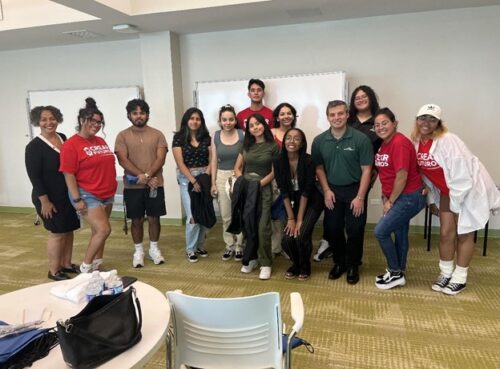It was business as usual for Facebook users worldwide when they began their Monday morning. However, late into the morning of October 4 at about 11:40 EST (Eastern Standard Time) according to The New York Times, Facebook and its family of apps went dark. Error messages were displayed and Facebook soon went dark in a matter of minutes.
The Times stated that the outage lasted for more than five hours, and some apps, while slowly restored, took time to be stabilized. The impact of the outage was worldwide and very hindering to users who often rely on Facebook and its family of apps.
According to the Times, globally, more than 3.5 billion people rely on Facebook, Instagram, Messenger, and WhatsApp to communicate with friends and family, distribute political messaging, and expand their businesses through advertising and outreach.
The negative impact of the outage could be felt because as the Times reasoned, “Facebook is also used to sign in to many other apps and services, leading to unexpected domino effects such as people not being able to log into shopping websites or sign into their smart TVs, thermostats and other internet-connected devices…They are critical platforms for doing business, arranging medical care, conducting virtual classes, carrying out political campaigns, responding to emergencies and much, much more,” said the Times. These online platforms are not just practical, in some cases they are crucial.
Depending on where one lives, according to NBC News, the outage could be an inconvenience for those living in the United States, for example. In the rest of the world however, it was a harmful detriment to those who rely on it.
The outage was severely felt in India, Latin America, and Africa. This is because online communication through Facebook and its family of apps are a necessity for people living there, as if it was a public utility. These online services are not only very important and essential for daily life, but the Times states it is cheaper than a phone call.
NBC News interviewed 28-year-old Richard James Mendoza, a freelance photographer and video editor in Quezon City, just northeast of the Philippine capital of Manila. Mendoza said everything just fell apart the day of the outage.
“Government offices, companies and schools in the Philippines use Facebook’s infrastructure as a central hub for nearly all information sharing,” Mendoza said, “so the outage was a “big deal” for people trying to look for information online as the outage was happening.”
Mendoza explained that he seriously depends on Facebook for valuable information on the country’s charged presidential election campaign and COVID-19 updates from the government. The outage brought his flow of information to a standstill.
NBC News also spoke to Marcus Leaning, a digital media education professor at the University of Winchester in the U.K..
Leaning stated, “In the global North, we tend to use such services as supplementary to other channels of communication, so the global outage will have a disproportionate impact.”
Facebook posted on its Twitter page, apologizing for the blackout once its apps became accessible again. “To the huge community of people and businesses around the world who depend on us: we’re sorry. We’ve been working hard to restore access to our apps and services and are happy to report they are coming back online now. Thank you for bearing with us.”
Facebook and the other apps within its domain were also reportedly down for another two hours on Friday the 8, the second outage for the company in one week, according to The Verge. This second outage was seemingly not related to the prior worldwide outage that week.
The internet has become such a reliable resource for people the world over. If that access to the outside world were to be cut off, especially in an outage as strange as this, what could be an annoyance for some, could be a serious disruption in everyday life for others.







